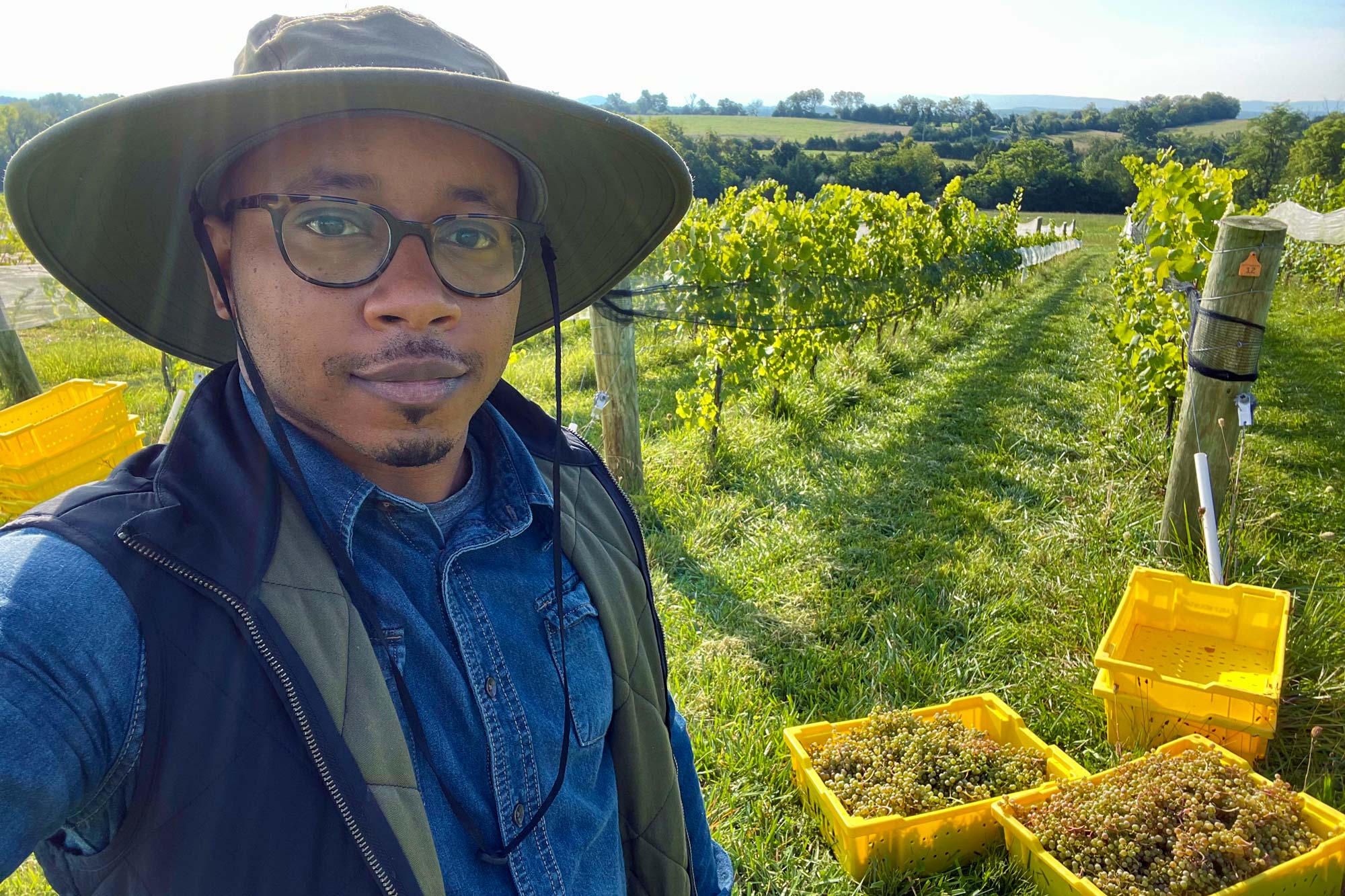“In a swirl, a sniff and a sip, you’re transported into someone else’s reality.” That’s one of the things Reggie Leonard loves about wine.
By day, Leonard works as associate director for career connections and community engagement at the University of Virginia’s School of Data Science. After hours, he cultivates his love of all things wine.
He aimed to get others interested Friday afternoon as a panelist at “Black Terroir: African Americans in Virginia Wine Country and Beyond.” The term “terroir” is a holistic reference to the natural environment for producing wine grapes, encompassing such factors as the soil, the climate and the rise and fall of the topography.
The event, held at the Jefferson School African American Heritage Center, was one among dozens of gatherings at this weekend’s UVA’s Black Alumni reunion. Joining him were 2011 alumnus Lance Lemon, co-founder and co-owner of a boutique distribution company, RichWine RVA; and Nick Jordan, a 2008 alumnus who co-owns Delaplane Cellars, located on Lost Mountain in Fauquier County.
Jalane Schmidt, an associate professor of religious studies and director of the UVA Democracy Initiative Memory Project, talked with Leonard about holding a wine-tasting session after she attended a similar virtual event featuring Leonard and others, organized by the UVA Club of Washington, D.C., in fall 2020.
“This event will showcase the history and growing presence of African Americans, and UVA alums and affiliates specifically, in Virginia’s wine industry, which is such an important element of Charlottesville’s local economy and calendar of events,” Schmidt said earlier this week.
It didn’t take much to convince Leonard to participate. “In fact,” he said, “I’m happy to share a glass of Virginia wine with anyone reading this.”
Ahead of the weekend’s festivities, UVA Today checked in with him about how he came to be such an oenophile – a connoisseur of wines, for the uninitiated – and other aspects of the growing culture.
Q. How did you get interested in wine?
A. I got interested in wine through free wine tastings at the Market Street Wine shop and through a YouTube series by chef-turned-rapper Action Bronson. I’d never heard wine talked about so vividly until going to that wine shop.
Even then, I didn’t think I’d really be able to pick up on the nuances they were describing. And when I began to pick up on those nuances, I didn’t think I’d be able to describe them. Then, once I was able to describe the nuances, I knew it was something I was seriously interested in.
Along the way, what I appreciated most about Action Bronson’s series was how knowledgeable he was about food and wine, while being so informal and unpretentious. It felt so much more inviting than the traditional contexts I had seen wine portrayed in.
Fast-forwarding a bit, I remember seeing a post in a Facebook group for wine lovers by Julia Coney (founder of Black Wine Professionals), encouraging people to apply for a wine education scholarship through Wine Unify. I applied, was accepted and began my journey in earnest at the end of 2020.
Q. What is your involvement now?
A. Currently, I’m all over the place in terms of my connection to the industry. Since 2020, I’ve hosted a three-part virtual community conversation series with Market Street Wine, spent the 2021 growing season in a vineyard in the Shenandoah Valley, curated a holiday four-pack for Blenheim Vineyards and hosted a companion event. And I’ve been helping with Blenheim’s new Oenoverse Wine Club, where I’ll be the emcee for all of the associated events.
I also serve on the steering committee for Black Cville, bringing some of my regional wine connections to bear.










